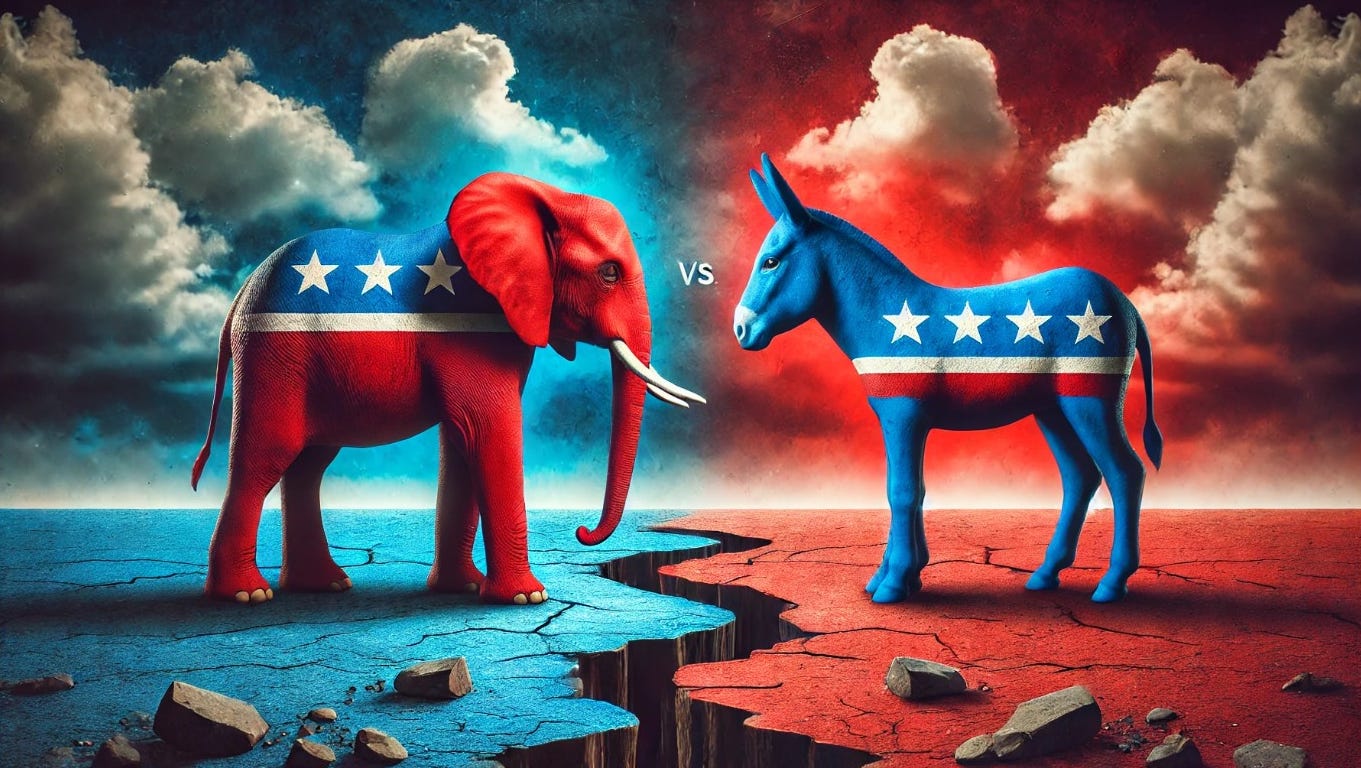Meredith College Poll Reveals NC Voters Divided on Leadership, Elections, and Political Polarization
With Wake County being a politically diverse and growing region, these findings frame challenges and opportunities for both major political parties.
Holly Springs, NC, Feb. 14, 2025 — A recent Meredith College Poll (link) sheds light on the political landscape of North Carolina, including Wake County, revealing a mixture of bipartisan approval, deep divisions, and a growing demand for a third political party. The poll, conducted between February 3-10, 2025, surveyed 703 North Carolina registered voters, providing insights into how residents feel about their leaders, election security, political division, and the state’s two-party system.
Governor Josh Stein’s Strong Start in Office
Governor Josh Stein, who took office just over a month ago, is enjoying broad approval across party lines. So far, 58% of North Carolinians approve of his leadership. Stein’s approval extends beyond Democratic voters, with a majority of Republicans (53.8%) also expressing support for his administration.
Stein’s approval is strongest among Democrats (65.6%), while Unaffiliated voters lean positively (55.8%). Political analysts suggest that his handling of Hurricane Helene's recovery efforts has helped boost his bipartisan standing. However, experts warn that his support among Republicans may weaken as legislative debates intensify in the General Assembly.
Trump Approval Up, But Divisions Persist
President Donald Trump has seen his highest approval ratings in North Carolina since 2017, with 47% of voters approving his leadership in his second term. However, polarization remains stark, with 91.1% of Republicans approving and 85.2% of Democrats disapproving.
Among independent voters, Trump’s approval is slightly negative (37.8% approve, 52.9% disapprove). Demographic splits further reveal that White voters (57.6%) support him, while Black (70.2%) and Hispanic voters (66.7%) strongly disapprove. Additionally, men are more likely to support Trump (51.6%) compared to women (42.6%).
Election Security: Confidence Varies by Party
Wake County and North Carolina voters are divided on election security awareness. While 60% of respondents know that voting machines are tested, and 52% are aware of ballot audits, perceptions of election integrity differ along party lines.
Democrats & Unaffiliated voters: More likely to be aware of election audits, paper ballot security, and nonpartisan poll watchers.
Republicans: More focused on party-affiliated poll watchers and concerns about voter fraud prosecutions.
These findings highlight a growing partisan gap in how voters perceive election security measures in North Carolina.
Political Division: Growing Concern for the Future
One of the most striking findings in the poll is the overwhelming sense of political division among voters. 78% of North Carolinians believe the country is more politically divided now than in the past, with 44% expecting division to worsen in the next five years.
Party Breakdown:
Democrats: 86% say the country is more divided; 60% believe it will worsen.
Republicans: 69% acknowledge the current division, but only 27% expect it to worsen.
Independents: 79% see growing division, and 45% predict it will increase.
These findings indicate that while all sides recognize division, Democrats and Independents are more pessimistic about improvement, while Republicans are somewhat more optimistic about future unity.
Eliminating the Department of Education: Controversial Move
One of the most controversial policy discussions in the poll is President Trump’s proposal to eliminate the Department of Education. The poll found that just under 30% of North Carolinians support eliminating the agency, while 63% oppose it.
Republicans: 47.1% support eliminating the Department of Education.
Democrats: Only 16.4% support the idea.
Unaffiliated voters: 22.8% support the elimination.
Support is highest among older voters and self-identified conservatives, but opposition remains strong across most demographic groups. Analysts suggest that education remains a key issue in North Carolina, and eliminating the department may not be a widely supported initiative.
Demand for a Third Party at All-Time High
Amid widespread dissatisfaction with the two-party system, 56% of North Carolinians say they want a viable third party to challenge Democrats and Republicans.
Independents: 68.9% strongly favor a third party, the highest among all groups.
Democrats: 58% support the idea of a third party.
Republicans: Only 42% support a third party, showing greater satisfaction with the current system.
What This Means for Wake County
With Wake County being a politically diverse and fast-growing region, these findings suggest challenges and opportunities for both major parties. Stein’s bipartisan appeal could help Democrats solidify their hold in suburban areas, while Trump’s continued strong Republican backing could shape GOP strategy in upcoming elections. Meanwhile, the increasing frustration with political division and the demand for a third party signals a potential shift in voter behavior, especially among independents.
As North Carolina moves further into 2025, these key issues—leadership approval, election security, political division, party dissatisfaction, and the role of federal agencies—will likely shape upcoming local and national elections.
About the Meredith College Poll
The Meredith College Poll is a nonpartisan survey conducted by Meredith College in Raleigh, NC, designed to gauge public opinion on key political, social, and economic issues affecting North Carolina residents. The poll uses a representative sample of North Carolina registered voters drawn from U.S. Census Bureau estimates and current voter registration data. The latest survey, conducted between February 3-10, 2025, had 703 respondents and a margin of error of +/- 3.75%.
The poll is widely recognized for its accuracy and in-depth analysis, providing valuable insights into the evolving political landscape in North Carolina.

